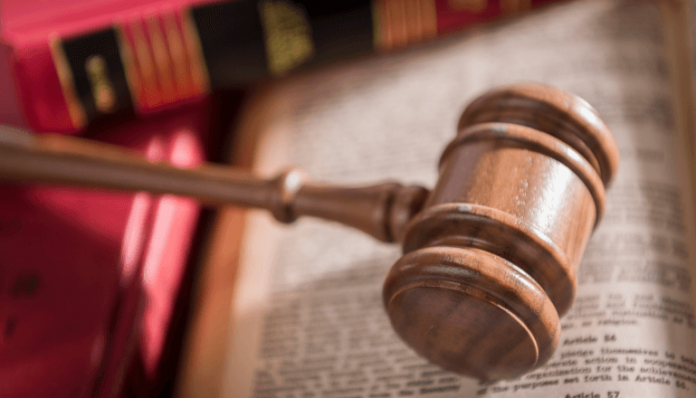This article is written by Anshika Agarwal, from Vivekananda Institute of Professional Studies (VIPS), GGSIPU, New Delhi. The article talks about the recent trend observed in the legal system of Ukraine, wherein the constitutional court of the country abrogated its laws pertaining to subjecting judges to criminal liability for delivering “knowingly unjust” decisions. The author has analysed the judgement talking about its relevance keeping in mind today’s legal system. The author has further provided an overview of the worldwide perspective over such laws.
Table of Contents
Introduction
“All the rights secured to the citizens under the Constitution are worth nothing, and a mere bubble, except guaranteed to them by an independent and virtuous Judiciary.” – Andrew Jackson
Apparently, the judiciary is one of the noblest institutions in a country. Being vested with the supreme authority to guard and protect the rights and interests of the general public, the solidarity of the institution itself needs to be preserved. The principle of the independence of the judiciary, forming the founding institution of democracy and rule of law, vests judges with supreme authority and guarded freedom to deliver judgements without any malicious executive or legislative intervention. This indirectly forbids any kind of general public’s exploitation at the hands of the executive, thereby promoting a justice friendly environment. However, questions pertaining to the abuse of power by the judiciary are likely to befuddle the legal system of the country.
Whether conferring the judiciary with unchecked freedom to deliver the judgements would lead to unavoidably unjust judgements? Would securing independence otherwise trigger the rage of exploitation of people at the hands of the judiciary? And lastly, whether criminal liability should be incurred on the judges so as to prevent any misuse of the authority vested in them?
Whilst the world still struggles to reach a conclusion, a strong stand over the issue was recently taken by the Constitutional Court of the Republic of Ukraine.
Recently what happened in Ukraine
The Constitutional Court of the Ukraine, in its judgement dated 11 June, 2020, came up with one of the most shocking alterations in its 2016 judicial reforms. The judgement overturning the country’s major judicial provisions, declared the law penalizing judges for deliberately pronouncing unjust decisions as propounded under Article 375 of the Criminal Code of the Ukraine to be unconstitutional.
Background of the judicial reforms of 2016
The initial judicial system of Ukraine, enshrined in its 1996 Constitution, failed to procure an independent judiciary which was essentially a fundamental principle of the country’s legal system. With the judiciary being an agent of the political institutions, the administration of the country suffered the most. The 2008 Report on the country’s competitiveness, released by the World Economic Forum, reported a low of 111 in the measure of the independence of the judiciary, reflecting the discrepancies existing in the system. Further, the country’s corruption arising out of unstable judicial practices too observed a low score of 3.2 and a high rank of 85 that year. This called for an immediate need to formulate such reforms that could restructure the judicial system of the country so as to secure the principles of separation of power and rule of law. The judicial reforms of 2016, however, came to rescue and liberated the judiciary from the tyranny of the government.
Brought in with the sole aim of imparting transparency to the judicial proceedings, the reforms were adopted by the Verkhovna Rada (unicameral Parliament) of Ukraine on 2 June, 2016. The Constitution of Ukraine was duly amended and a new law “On the Court System and the Status of Judges” was introduced. New rules pertaining to the independence of judges consolidating the judicial strength by segregating it from any kind of political and commercial manipulation and the anti-corruption measures subjecting the lifestyle activities of the judges under the umbrella of strict vigilance, were incorporated. The absolute and unconditional form of judicial immunity against any kind of criminal prosecution was limited, making the judges criminally liable for their corrupt judicial actions.
The amendment lifting this veil of immunity from criminal liability of the judges was introduced in the form of Article 375 to the Criminal Code of the Republic of Ukraine. The judges were now made liable for their intentional judicial wrongs, thereby subjecting them to criminal prosecutions.
Article 375 of the Criminal Code of the Republic of Ukraine
The said Article imposed a penal liability on the judges for “knowingly” pronouncing unjust or unfair judgements, orders or rulings. The liability extended to include a restraint of liberty for a period of 5 years or imprisonment for two to five years. The liability further increases to imprisonment for a period of five to eight years when the knowledge of the act is coupled with a mercenary motive or the said act attracts unfavourable consequences. Herein, the act refers to the process of delivering unjust judgements.
The judgement
The judgement was in response to the constitutional submissions made by 55 People Deputies’ of Ukraine (MPs) in the Constitutional court of the country. The petition questioning the constitutional nature of Article 375 of the Criminal Code, expressed concerns over the issues of impartiality and independence of the judiciary. The petition went on to challenge the alleged “unfair” application of the impugned Article in a group of cases namely Oleksandr Volkov v. Ukraine, Kulykov and Others, Sovtransavto Holding and Denisov’s case. The cases collectively dealt with the violations threatening the powers vested with the judiciary, thereby infringing the basic rule of independence of judiciary guaranteed by the country’s Constitution.
Contentions raised
The petitioners contended that the impugned Article of the Code violated the principle of supremacy of law under Article 8 and Article 24 of the Constitution. The said Articles provide for the separation of functions between the executive, legislature and judiciary, thus upholding the fundamentality of the principle of supremacy. The petitioners further challenged the constitutionality on the ground that the said Article influences the independence and the immunity of the judiciary enshrined in the fundamental law of the country. Article 124 of the Constitution provides for functional immunity, shielding the judges from any liability consequent to the judgements delivered. In a nutshell, the petition pointed out that a compliance to the impugned Article severely defies this provision along with the others mentioned above, thereby concluding it with a prayer of the remedy for the same.
Held
The judgement declared the impugned Article of the Code unconstitutional, thereby abolishing the criminal liability of the judges for delivering “knowingly” unjust judgements. The judgement further cancelled the liability of all the judges involved in producing unfair judgments pertaining to Maidaan activists. It resulted in the acquittal of the judges like Oksana Tsarevych for knowingly pronouncing wrongful rulings against the Euro maidan participants by disrobing at least 4 of these participants of their driving licenses.
Critical analysis of the judgement
In the context of the above judgement, Valentyna Danishevska the Ukraine Supreme Court Head, confirms that there were nearly 1000 criminal applications registered against the judges in the country’s pretrial investigation register during the period of 2013 and 2019. Danishevska further remarks, “These figures are confirmation of the facts of pressure. A situation often happens when these statements come from the parties to the process, including from the prosecutors.” Thus, these figures not only subject judges to a great deal of pressure, but also endanger the independence of the judiciary.
The judgements operate on the reasoning that the application of the impugned Article infringes the basic principles of immunity and independence conferred on the judiciary. Moreover, the term “unjust” imparts a subjective sense and may likely change with the change in the process and perspective of the investigating officer. What may be just for one person may be unjust for another. Thus, a vague determinant cannot be employed in the country’s machinery to decide the liability of an institution as esteemed as the judiciary.
Amidst the world wide debates over the issue, the country of Ukraine via the judgement has taken a strong stand to this effect. The judgement has employed convincingly detailed reasoning backed with relevant databases answering the associated counter claims and the contentions. The judgement comes out to be a guiding light for the world to analyse the legal possibilities associated with such legislative actions.
Worldwide perspectives
Balancing the powers conferred to the judiciary and executive to secure the constitutional morale, has always been the prime aim of most of the progressive countries. To this effect, the legal system of every country functions in a way that the said goals are complied with and the sacredness of these institutions are maintained. As per the data collected from the World Justice Project’s Rule of Law Index, the judicial system of the country of Denmark ranks 1 in the measure of adherence to the principles of rule of law from its general public’s and citizens’ perspective. The country is followed by Norway, Finland, Sweden, Netherlands in that order. The indexing takes into account the jurisdictions of 113 countries. The index operates on factors like limitations on executive and judicial functions, government’s responsibilities towards its people and the country, extent of basic rights granted to people, law, order and security, absence of corruption and the extent to which civil and criminal justice is ensured by the judiciary.
Working on these 8 distinct parameters, the index provides us with the picture of how well the institutions of the independence of judiciary and rule of law are secured in a country. The rankings of the countries like Norway and Finland indicates absence of corruption which indirectly reflects a safe and sound judicial system prevailing in the country. The ranking further determines the efficacy of the laws of these countries holding together the judiciary and executive departments, thereby ensuring that the general public is not exploited at their hands. With regards to the legal system prevailing in these countries, no criminal liability is imposed on the judges for delivering knowingly unjust decisions. This immunity also prevails in Sweden and Netherlands, thereby guarding judicial independence.
India’s perspective
The essence of Indian democracy lies in its strong and independent judiciary delivering its perspectives and opinions without any fear. This forms the crux of the Indian constitutionalism. Thus, the law of the country clearly does not advocate for any such regulation that binds the judges with a criminal liability for deliberately delivering unjust judgements. This is in keeping up with the basic principles of separation of power and independence of judiciary, so that judges work in the light of securing social welfare and exercise the noble authority of making decisions conferred to them, without any fear. However, such an authority is not absolute and a system of checks and balances ensures that no encroachment and misuse of powers takes place.
To this effect, courts have, over the time, observed and evolved guidelines determining the conduct of judges whilst discharging their duties. There exists a prescribed manner in which the judges are required to act to prevent any misuse of powers at the hands of the judiciary. Justice Kurian Joseph in the judgement of K.P Singh v. High Court of H.P and Ors, opined integrity as the founding institution of the judiciary. He defined integrity in the most wholesome way, quoting “Integrity according to Oxford dictionary is moral uprightness; honesty. It takes in its sweep, innocence, trustfulness, openness, sincerity, blamelessness, immaculacy, rectitude, uprightness, virtuousness, righteousness, goodness, cleanness, decency, honour, reputation, nobility, irreproachability, purity, respectability, genuineness, moral excellence etc.” The judges should imbibe this sense of integrity while performing their judicial functions.
Finally, the Apex Court in the case of Tarak Singh v. Jyoti Basu, (2005)1 SCC 201, made “integrity” mandatory compliance while delivering judgements to maintain the sanity of the institution and to keep the public trust intact. The judgement quotes, “It is high time the judiciary took the utmost care to see that the temple of justice does not crack from inside, which will lead to a catastrophe in the judicial-delivery system resulting in the failure of public confidence in the system.” Any dishonest deed on the part of a judicial officer constitutes lack of “integrity”, forming an antithesis to probity and hence are backed by sanctions.
Conclusion
The abrogation of Article 375 by the Constitutional Court of Ukraine from its Criminal Code has not only consolidated the country’s judicial structure but has also guided the world by taking a stand to this effect. The country’s decision serves as a case study backed with statistical data for the rest of the world. The inconsistency in Ukraine’s administration due to the application of such laws provides the world with the reasoning as to why and to what extent the judges should be granted immunity from criminal prosecutions. Further, in countries like India, courts with a sole aim to preserve the sanctity of the judiciary, have established a code of ethics regulating the conduct of judges while delivering the judgements.
References
- https://www.imolin.org/doc/amlid/Ukraine_Criminal%20Code%202001.pdf
- http://en.dejure.foundation/library/judicial-reform-in-ukraine-what-has-changed-for-the-last-three-years
- https://www.scribd.com/document/3486718/The-Ukraine-Competitiveness-Report-2008
- https://swarb.co.uk/oleksandr-volkov-v-ukraine-echr-9-jan-2013/
- https://laweuro.com/?p=5288
- https://www.justice.gov/sites/default/files/eoir/legacy/2013/11/08/constitution_14.pdf
- http://khpg.org/en/index.php?id=1593568839
- https://en.interfax.com.ua/news/general/675531.html
- https://worldjusticeproject.org/sites/default/files/documents/WJP-ROLI-2020-Online_0.pdf
LawSikho has created a telegram group for exchanging legal knowledge, referrals and various opportunities. You can click on this link and join:
 Serato DJ Crack 2025Serato DJ PRO Crack
Serato DJ Crack 2025Serato DJ PRO Crack











 Allow notifications
Allow notifications


